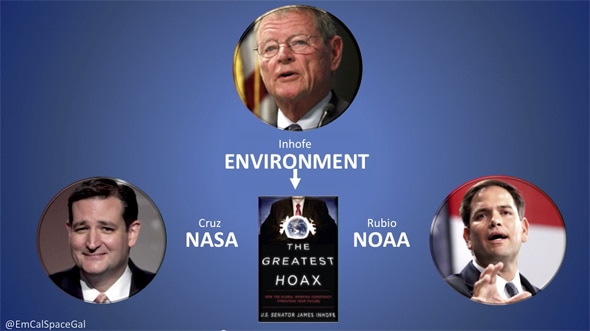Create a free profile to get unlimited access to exclusive videos, sweepstakes, and more!
How Critical Thinking Affects Society

Critical thinking is important. If we blindly believe everything we hear, well then, we’re in for a world of hurt.
Science is based on critical thinking, on asking questions, making sure suppositions are supported by evidence, and above all else being willing to admit mistakes and change conclusions based on that.
But it goes far beyond science. We live our lives every day making choices based on information we receive, and a lot of that information should not be trusted. And yet we make huge decisions—literally life or death decisions—on information that can be terribly biased and logically vacuous.
Emily Calandrelli is a science communicator who also feels pretty strongly about this. She gave a talk at TEDx Oregon State University recently in which she outlines where thinking goes wrong and how becoming literate in STEM—science, technology, engineering, and math—can make the world a far better place.
There’s a lot of good stuff in there. I was particularly impressed with her conclusion:
If we can accomplish these two things—a change in mindset and a grassroots effort to combat pseudoscience—we could all work together to foster a more STEM literate society. A STEM literate society elects STEM literate officials to represent them. A nation with STEM literate officials is one that is more innovative, healthier, and more sustainable in a world where science and technology are moving at an exponential pace. This is a nation and a society I think we would all be really proud to be a part of. And I hope we can all work together to create it. We can no longer afford to be STEM illiterate in a world, in a nation, surrounded by science and technology.
Amen.


























